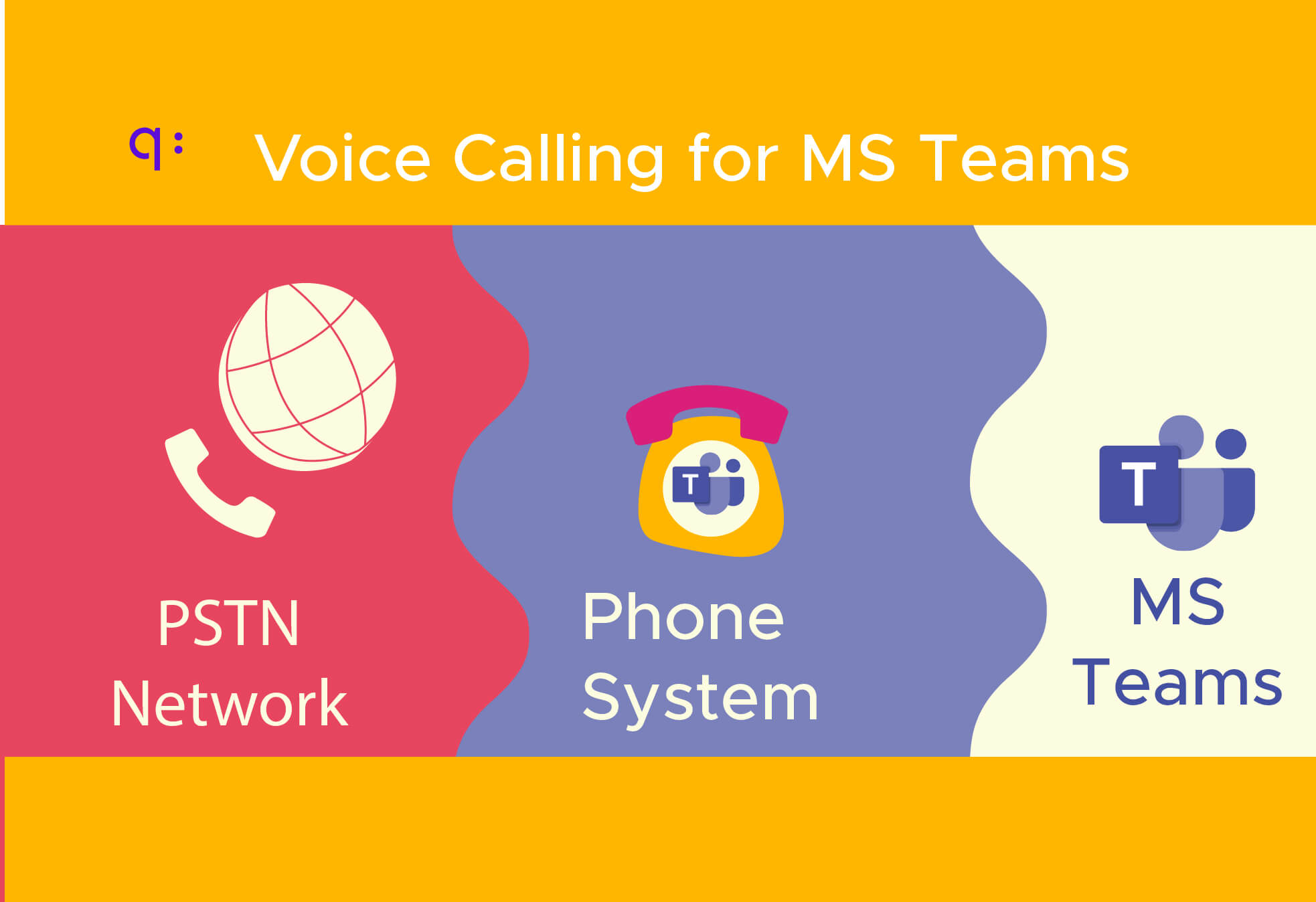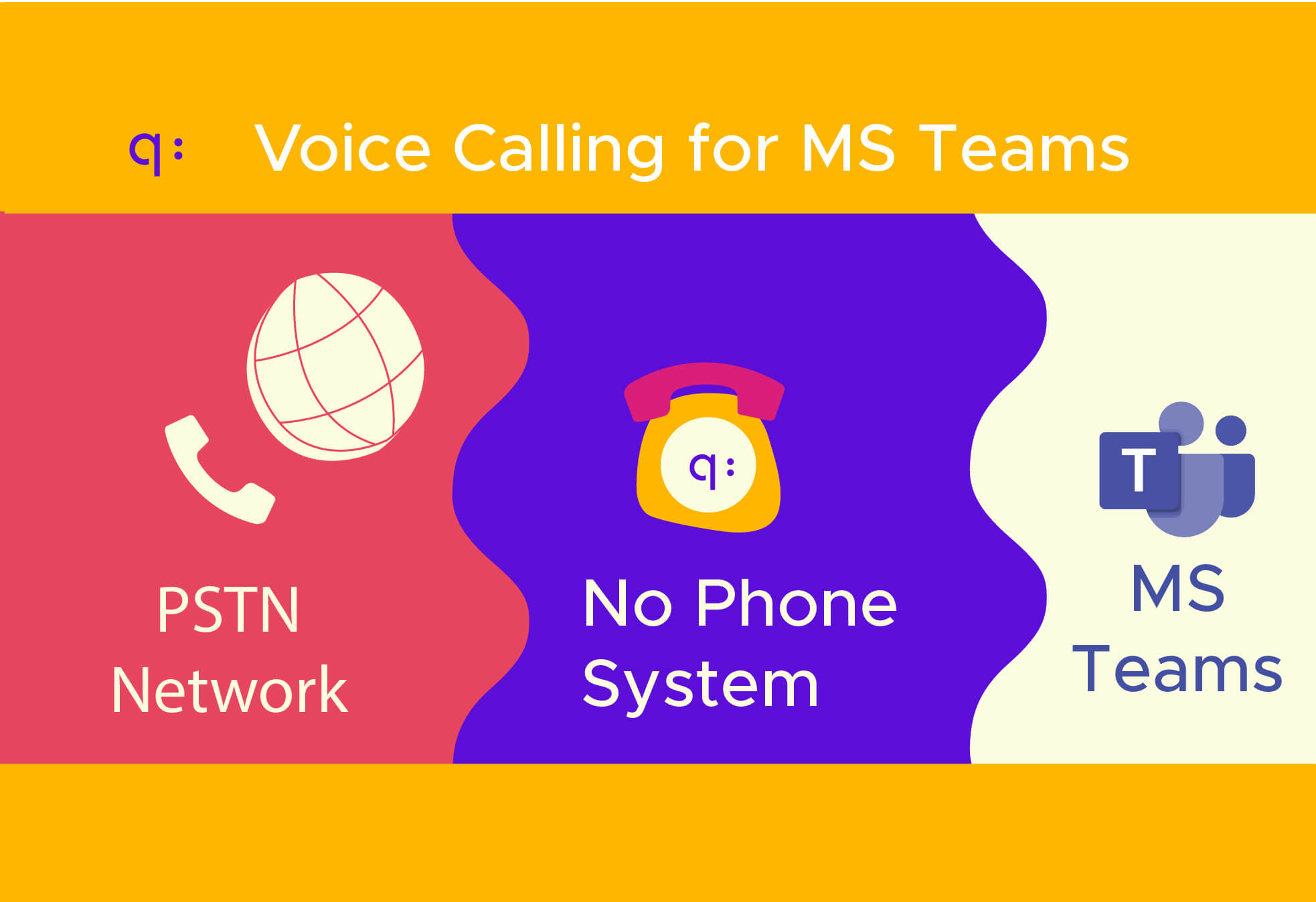Voice Services (PSTN) Deployments based on Microsoft Teams Phone vs. Quobis Phone
7 March 2022MS Teams is the most popular UCaaS solution on the planet with 500,000 organizations of all sizes using it.
Although some voices point to a certain growth stagnation, the reality is that 250 million active users as a whole represent a market where an entire ecosystem of services integrated with this platform can grow.
Among all the possible complementary services to the base of collaboration tools offered by MS Teams, the services of voice calls are among the most demanded.
Microsoft Teams Phone vs. Quobis Phone
When talking about the different options of deployments that enable PSTN voice calls with MS Teams users, we can differentiate between two large groups: those that make use of Microsoft Teams Phone and those who, on the contrary, avoid its use.

We can justify this division both from a technical and economic perspective:
Technical criteria
- Microsoft Teams Phone offers a native user experience in the different environments supported by MS Teams apps.
- Compatible hardware must be certified.
- Depending on the chosen strategy, there may be a need to deploy certain network elements in the Azure cloud.
- Coexistence with “legacy” elements (fax, existing pbx, telephones, SIP telephones not licensed by Microsoft…).
- Depending on the type of deployment, both the company and the operator must assume greater or lesser complexity in their architecture.
Economic criteria
- The use of the Microsoft Teams Phone implies a cost structure that is much more conditioned by Microsoft products.
- Requirement of compatible MS 365 licenses or upgrades.
- Microsoft Teams Phone license cost per user (approx. 6$).
- Geographic constraints when choosing a carrier.
- Less negotiating power with carriers in some modalities: prices of Microsoft calling plans or operators compatible with Operator Connect.
- Deployments based on Direct Routing require certified SBCs or compatible cloud SBCs.
Voice service deployment options in MS Teams
There are many variables that influence when choosing one solution or another, from the size of the company, the number of users with MS Teams licenses, the number of work centers to cover, the mobility needs of the users, contexts of teleworking, security… but at the end of the day the choice will be between one of these five alternatives, or even a combination of both.
The role of Quobis in voice deployments for MS Teams
Quobis is positioned as a reference consultant for both Telcos and companies that want to offer a voice call solution to users of the Microsoft 365 ecosystem, and also to those users who, not having access to services such as MS Teams, need to interact in time real with those who are licensed users.
Our experts will analyze your infrastructure and propose the architecture that best suits your needs.
What is the role of PSTN calls in the MS Teams ecosystem?
Unified communications must still consider the use of technologies sometimes considered legacy, but which still have an ina[...]





